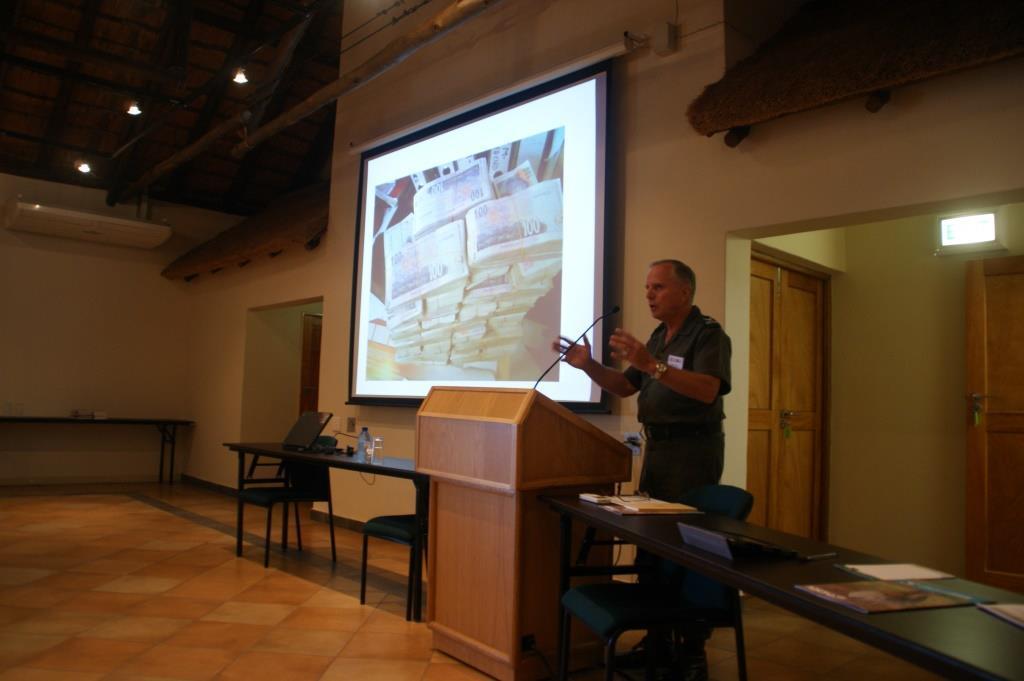Press release: 17 April 2014
Wildlife security experts from 13 countries gathered in Mopani Rest Camp, in northern Kruger National Park for four days (from 29 March to 1 April 2014) to discuss recent patterns in rhino poaching and to identify tools and techniques to advance wildlife protection and improve interception of illegally trafficked rhino horns.
This meeting was the second workshop, following the inaugural workshop that took place in Namibia in 2012. The aims of these workshops are:
- To introduce field practitioners to others facing similar challenges
- To allow field people to share knowledge on which techniques and technologies are working and which are not, and under what conditions/circumstances
- To provide the opportunity for field people to brainstorm and problem solve together, in order to troubleshoot needs for wildlife areas in general, and specific needs for particular rhino areas
Progress made since the first meeting included: high-level attention on rhino poaching from foreign governments and global leaders, formal recognition of the problem by the Conference of the Parties to CITES (the Convention on International Trade in Endangered Species) in Bangkok in 2013, and landmark prosecutions and sentences in some range states, and transit and consumer countries.
At this workshop, protected area managers and wildlife security specialists presented sessions on veterinary issues related to the deployment of tracking devices, new technologies and tools for rhino monitoring and protected area security, forensic science and legislation to aid in prosecutions of rhino crime, and using information effectively to prevent poaching of rhinos and combat trafficking of horn. Technology companies were invited for one day to demonstrate their products. Donors with targeted funds for rhino conservation (USFWS, SRI, TRAFFIC, WWF-US, WWF-SA, IRF and StopRhinoPoaching) were on hand to discuss their contributions, to identify partners, and to brainstorm new solutions.
Attendees came from 13 countries, including eight African rhino range states (Kenya, Mozambique, Namibia, South Africa, Swaziland, Tanzania, Zambia, and Zimbabwe) and three Asian rhino range states (India, Malaysia and Indonesia). The experts included representatives of 42 organizations, including 12 provincial and national wildlife agencies, and more than 30 rhino areas.
The meeting was hosted by South African National Parks (SANParks) and funded by Save the Rhino International (SRI), US Fish and Wildlife Service (USFWS) and the World Wide Fund for Nature – South Africa (WWF-SA).









